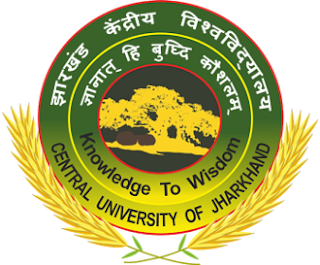PRACTICAL WAYS TO DEAL WITH MAOIST REBELLION IN INDIA
Experts from across the the country participated in the round Table Conference on ‘Naxalism, Development
and Crisis of Governance in the Context of Jharkhand’, which was organized by
the Centre for Human Rights and Conflict Management of Central University of Jharkhand
on 26th March 2014. Conference was divided into four sessions ‘Is the Maoist
Movement Critical’, ‘Dynamics and Drivers’, ‘The State as Problem and Solution’
and ‘Can the Future Be Better’.
Open invitation was
extended to all faculty members and students of Central University Jharkhand to
attend the round table and freely express their views. However, during the
discussion none of the participants explicitly mentioned that Maoists are
actually fighting an ideological war with the state. Many of them preferred to
describe rebellion in central India as land reform movement which has been
degenerated into law and order problem of large proportions.
Practical suggestions
were put forth in the conference to deal with the Maoist insurgency in mineral
rich central India. However, there was little agreement on the issue as such.
- Construction of proper roads,
schools, and health centers in tribal areas should be given priority. At
the same time state must implement the food security bill in tribal areas
on priority basis to win their confidence and full participation in the
development process.
- Keeping in mind the resistance
from people, industrialization in the state should usher through public
sector undertakings. Only PSU’s should be allowed to exploit the natural
resources in the area.
- Government must pay at least 10
times more than the market price as compensation before acquiring the land
of tribal community.
- Construction of small dams
should be encouraged to provide irrigation facilities to farmers.
- Establishment of food
processing should be encouraged to generate employment.
- Population growth should be
controlled in tribal areas for better future by spreading awareness about
family planning.
- Role of civil society should be
encouraged to establish communication with the community.
- Corporate houses operating in
Maoist affected areas should be encouraged to spend at least a small part
of their profit for the development of the area.
- Model of development must be tailored
to suit particular area.
- Decentralization of power must
be encouraged through proper implementation of Panchayati Raj System.
- Activities of people with
interests in perpetual conflict must be curbed.
- Negotiation with Maoists must
start. State must not indulge in extrajudicial killing of Maoists leaders
and their sympathizers.
- State must communicate with the
people of Maoist affected areas and must inform them about its noble
intention to counter the propaganda by communists and hear their concerns.
- Special administrative officers
should be appointed for providing policy inputs.
- Synergy should be developed in
the military and development operation in affected areas.
- Credible data should be
provided to policy makers to guide them in policy formation.
Maoist rebels generally
claim that government is ignoring the voices and aspirations of tribal people
living in central India as their demands are antagonistic to the schemes of
large corporate houses on whose behalf state is acting. Tribal community must be
informed that industrialization is necessity, even communist regimes resort to
exploitation of natural resources through state owned companies.
Industrialization will not be stopped, even if communist government comes to
the power in India.
State must use dual
strategy to deal with Maoists. State must use security forces to eliminate
communist revolutionaries and at the same time placate tribal community through
modest schemes like roads, schools and other such development measures. During
the discussion one or two academicians also suggested that their counterparts
who are sympathizers of Maoist rebels should be taken to the task by state by
denying them benefit which they accrue from the state. It is highly
problematic, objectionable and undemocratic way of dealing with dissent of any
kind which must be ignored and should have no place in democratic India.
Prof. A. N. Mishra, Vice
Chancellor of Central University of Jharkhand inaugurated the roundtable
conference. R. R. Prasad, Former DGP of Jharkhand, Dr Ajay Sahni, Executive
Director of Institute of Conflict Management, Dr Alok Kumar, Associate
Professor in Centre for Political Studies of Central University of Bihar, Dr.
N. Manoharan, Research Fellow at National Maritime Foundation, Dr Ashok Nimesh,
Assistant Professor at the Centre for Human Rights and Conflict Management of
Central University of Jharkhand were the participants in the event among
others.
end.




Comments
Post a Comment